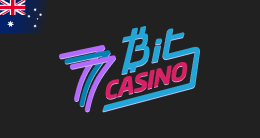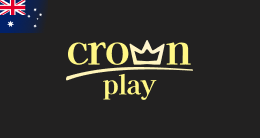Ricky Casino Online Review
In today's fast-paced world, the importance of effective communication cannot be overstated. As we navigate through various social and professional landscapes, clear dialogue fosters understanding and collaboration.
Moreover, the rise of digital platforms has transformed how we connect and share information. Social media, emails, and instant messaging have reshaped our interactions, making them more immediate yet complex.
As we embrace these changes, honing our communication skills becomes essential. Engaging in thoughtful conversations can bridge gaps, resolve conflicts, and build stronger relationships in our increasingly interconnected society.
Understanding the Importance of Communication Skills
Effective communication skills are essential in today’s fast-paced world. They not only facilitate the exchange of ideas but also enhance relationships in both personal and professional settings. Mastering these skills can lead to greater collaboration and understanding among individuals.
In the workplace, strong communication can drive success and foster a positive environment. Employees who can articulate their thoughts clearly are more likely to engage in meaningful discussions, leading to innovative solutions and improved team dynamics. This, in turn, boosts overall productivity.
Moreover, communication skills extend beyond verbal exchanges. Non-verbal cues, active listening, and empathy play crucial roles in building connections. By honing these abilities, individuals can navigate complex social situations, resolve conflicts, and create an atmosphere of trust and respect.
Exploring Different Types of Communication Methods
Effective communication is essential in today's fast-paced world, where various methods facilitate connections. From face-to-face conversations to digital platforms, each method has its unique advantages.
Traditional methods like phone calls and letters still hold value, while social media and instant messaging offer instant interaction. Understanding these differences can enhance personal and professional relationships.
Overcoming Barriers to Effective Communication
Effective communication is essential in both personal and professional settings. However, various barriers can impede this process, leading to misunderstandings and conflict. Identifying these barriers is the first step toward improving communication.
Common obstacles include language differences, cultural misunderstandings, and emotional barriers. These issues can create gaps in understanding, making it difficult for individuals to convey their thoughts and feelings accurately. Addressing these challenges is crucial for fostering better relationships.
To enhance communication, individuals can adopt strategies such as active listening, seeking clarification, and being mindful of non-verbal cues. These approaches can bridge gaps, ensuring messages are delivered and received more effectively.
Here are some strategies to overcome communication barriers:
- Practice active listening to ensure understanding.
- Encourage open dialogue to clarify misunderstandings.
- Be aware of cultural differences in communication styles.
- Use simple language to avoid confusion.
- Pay attention to non-verbal signals to enhance message delivery.
Developing Active Listening and Empathy Skills
Active listening and empathy are essential skills in today's fast-paced world, where communication often takes a backseat. By truly engaging with others, we foster deeper connections and understanding. These skills not only enhance personal relationships but also improve professional interactions.
Developing active listening involves not just hearing words but also interpreting emotions and intentions behind them. This practice encourages individuals to fully concentrate, respond thoughtfully, and remember key details, leading to more meaningful conversations and stronger bonds.
Empathy complements active listening by allowing us to step into another’s shoes. It promotes compassion and understanding, helping to bridge gaps in communication. Cultivating these skills can transform our interactions, create a supportive environment, and ultimately lead to more harmonious relationships in all areas of life.
Practicing Communication in Everyday Situations
Effective communication is an essential skill that can significantly enhance our interactions in everyday life. Whether it's a casual conversation with a friend or a discussion with a colleague, clear communication fosters understanding and connection.
Practicing communication in routine situations helps build confidence and refine our ability to express thoughts clearly. Engaging in small talk, asking open-ended questions, and actively listening can transform mundane exchanges into meaningful dialogues.
Moreover, honing communication skills can lead to improved relationships and reduced misunderstandings. By being mindful of our verbal and non-verbal cues, we can create a more inclusive environment that encourages open dialogue and shared ideas.








